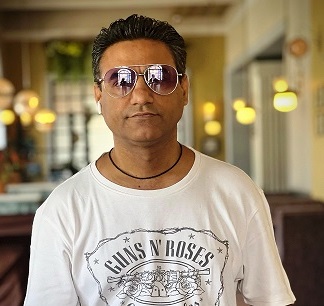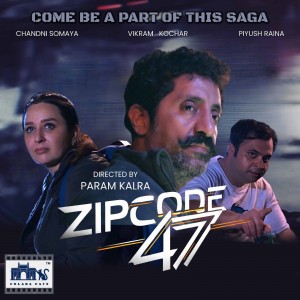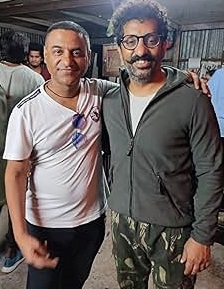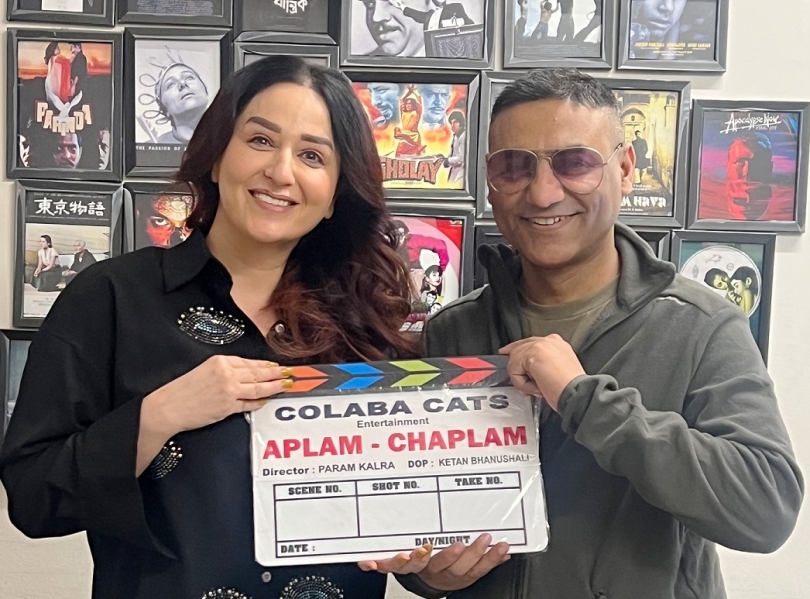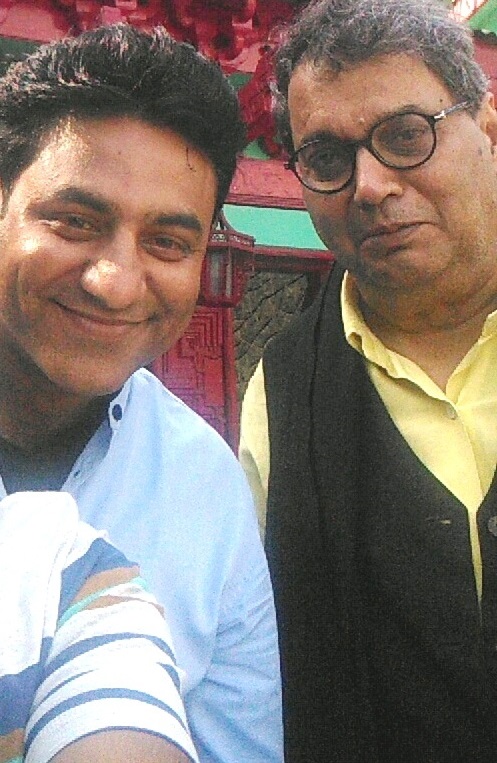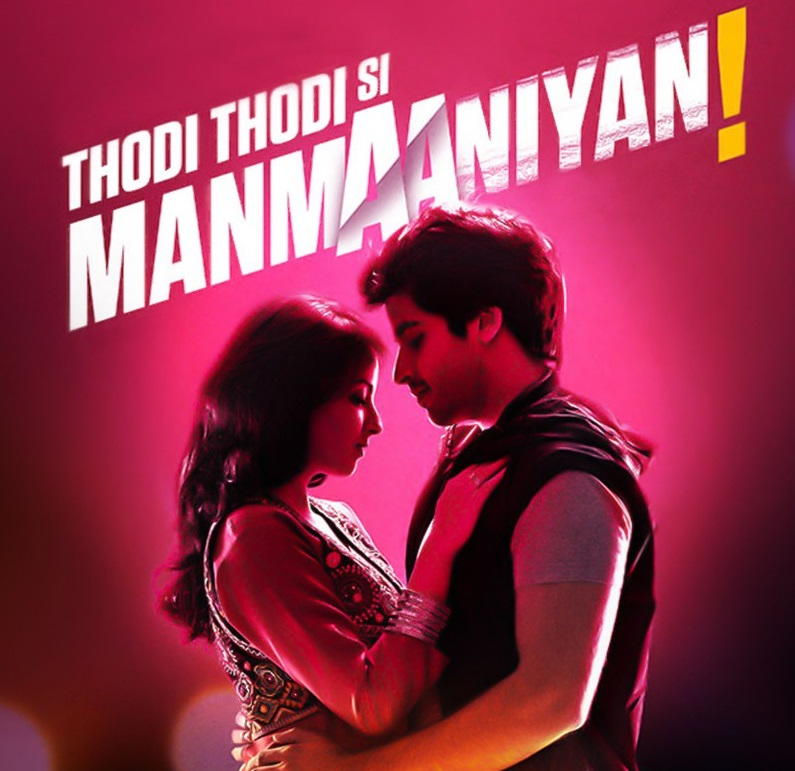|
|
||
|
Pro Tools
FILMFESTIVALS | 24/7 world wide coverageWelcome ! Enjoy the best of both worlds: Film & Festival News, exploring the best of the film festivals community. Launched in 1995, relentlessly connecting films to festivals, documenting and promoting festivals worldwide. Working on an upgrade soon. For collaboration, editorial contributions, or publicity, please send us an email here. User login |
PARAM KALRA: From c-grade to SEE GRADE
PARAM KALRA: From c-grade to SEE GRADE A Physics graduate from Delhi, with a certificate in video editing, writer-director-producer Param Kalra began his career rather modestly. He will not name the films, but they were B and C grade, he says, nonchalantly. Ignoring the content of those films, he learnt about the basics of shooting during this period. Whether it is a B grade or C grade film, there will be trolley movements, there will be prime or ultra-prime lenses, and the rest of shooting paraphernalia. Fate then got him an opportunity to work for off-beat film-maker Anurag Kashyap and showman Subhash Ghai, stints that did him a world of good. Today, he has already made several short films, an episodic sci-fi drama, ZIPCODE 47, and is working on his feature debut film that he has named Rom-Kom. Don’t be misled by the title. The film is about a comedy that surfaces during divorce proceedings, and a humorous look at divorce itself. Param is of the opinion that humour can solve a lot of our problems. So, where did the sci-fi come from? A voracious reader, he had read a Ray Bradbury (author of Fahrenheit 451, published in 1953 and filmed in 1966) short story that set him thinking. Along with his own inputs, he got a writer on board, and ZIPCODE 47 got underway. A socio-political sci-fi, futuristic drama, it addresses a totalitarian state, with Big Brother watching everything and everyone through drones. A woman, who has been in coma at a hospital, awakes, and manages to give the security a slip. While she was in coma, everything has changed in her country, and she is pursued by a drone. The woman is desperately seeking her lover, who is imprisoned in a facility that is known as ZIPCODE 47. Luckily, she meets two persons who are willing to help her get to him.
“You will see Vikram Kochhar (one of the helpers, a former soldier) in an entirely different light in ZIPCODE 47. No comedy, no tom-foolery that is generally associated with him. “I had seen Vikram’s plays and the film Dunki, and was confident that he would deliver. Vikram himself was hesitant. It took some convincing, but Vikram finally agreed. In fact, he won the Best Actor prize at the Golden Jury Film Festival, held in July 2024. The second member of my cast is Piyush Raina, who was also in Dunki, playing a dhabewala. His physicality suited the character very well.”
“For the female protagonist, I chose Chandni Somaya, who has lived in the USA and done plays there, including Manto (Sadat Hasan Manto, legendary Urdu writer of films and plays) dramas. We met at a film festival two years ago, and hit it off. Soon, she and I joined hands to form our production house, Colaba Cats. Before I cast her in ZIPCODE 47, she had done one film, and had been approached by a director who wanted to cast her as a Deputy Commissioner of Police (Chandni is tall and well built), but when he narrated the story to her, there was no DCP in it. Chandni was aghast. ‘Where is the DCP in this story?’ she asked, and he replied that the DCP’s role was yet to be written. Chandni narrated this incident to me, with full animation and emotions, and that was when I realised that she can be a good actress. So, I cast her in a short film, Aplam Chaplam, before casting her in ZIPCODE 47.” Avery unusual theme, the film has some undertones of George Orwel’s 1984 and Big Brother is watching.
Recalling his days with Subhash Ghai, he gave him credit for making him understand how the climax of a film should unfold. “He was a master of climax designing,” opined Param. When I joined him, Subhashjee was planning Khalnayak Returns, in 2016. I had seen two films of Subhashjee, Krodhi and Meri Jung. In Krodhi I liked the arc of the lead character, played by Dharmendra, who metamorphoses from a gangster into a saint. Through a reference, I joined him in his story department, where I worked with Anjum Rajabali. I used to make notes and convert them into the screenplay, which I would then narrate it to Subhashjee. I also vetted the various unsolicited stories that were sent to Subhashjee. He often said that many films are same in their essence, although the narrative may be different. The core emotions seldom change.” He further revealed that Subhashjee is a lion-hearted man. “Producer N.N. Sippy, who had given Subhashjee his directorial break in Kalicharan, found himself in a financial crisis, and reached out to Subhash Ghai, to make a film, to recoup his losses. Although he was, by then, an established director, with hits like Karz and Hero against his name, and was launching his next production, Karma, at that time, he delayed his own film and came to Sippy’s rescue, to make Meri Jung. Meri Jung was written by Javed Akhtar, who had seen Gautam Govinda and was impressed by Subhashjee’s direction. He had saved the Meri Jung film script for Ghai for a few years, and it came in readymade use for the N.N. Sippy film.” “Before joining Subhash Ghai, I had worked with Anurag Kashyap as assistant director. A great admirer of his work, I was sorely disappointed when he initially refused to take me on board. I showed him four short films I had made, and he liked them. But he already had several assistants, and there was no place for one more. Nevertheless, I was persistent. I said, ‘I will hold a pen and stand on your sets, just watching you work.’ Ultimately, he relented, and appointed me on a trial basis, as assistant, in his film No Smoking (2007). After 15 days, I was confirmed and given the onerous task of writing continuity, but I enjoyed it thoroughly.” As assistant to Kashyap, Param learnt various aspects of film-making, like shot-division and giving freedom to actors to go beyond the script, but within limits. “For the first time, I saw scenes being rehearsed. Till then, none of the films in which I had worked had the practice of rehearsals. But from Anuragjee, I learnt that rehearsals can add a lot to the shot. You could get inputs from the Director of Photography and the Production Designers, besides, of course, the actors, during rehearsals. After a couple of rehearsals, the shot would be okayed in one or two takes.” He added, with a chuckle, that “One would expect a newcomer to make the journey from Subhash Ghai to Anurag Kashyap, but in my case, it was the reverse. In No Smoking, Param got credit in the end-credits as “assistant director: continuity/assistant director: post-production”.
Even before joining Subhash Ghai, Param had co-written a film, Thodi si Manmaniyan, directed by Aditya Sarpotdar (who later made Munjia, 2024), which took a while to go on the sets. “But just as my term with Subhashjee got over, Thodi si Manmaniyan got underway. A tale about a band, it was released at a time when Bahubali was running in almost all cinemas, and the distributors got very few cinemas to show this film. Thus, it got very limited viewing. It is now available on Shemaroo.” After Thodi si Manmaniyan, Param had narrated a Rajasthan-based bio-pic story to Ajay Bahl, who made Section 375. Param had been signed by Bahl, but the project got scuttled due to Corona. He then worked with Shivam Nair (whose film Diplomat is releasing next week) as a writer, and is still associated with the director. During Corona, Param made a short film called Saala Bastard (2021), which was streamed on Disney Hotstar. “I am currently working on the post-production of a web series called Antarik (a crime drama) and also planning an action film, starring Sharib Hashmi, Faisal Ali and Anud Singh Dhaka (lead actor of JanHit Mein Jari).” Kalra feels more comfortable directing, rather than acting. He feels he can be more objective towards the script when he is not the writer. Also, he chooses writers based on his perception that they can do justice to a theme. “No writer can claim that he can write any kind of subjects with equal ease and perfection.” That is why he has assigned writing duties of Rom Kom to Arjun Bhandegaonkar (who co-wrote the recent The Sabarmati Report) and Abhishek Pandey. A fan of directors Clint Eastwood—who has not made any film without morals--and Vijay Anand, whose range of films, from Guide to Jewel Thief to Johnny Mera Naam to Teesri Manzil show what a versatile director he is. In his spare time, Param likes to watch plays of Manav Kaul and reads works of authors Swadesh Deepak (whose story Court Martial was turned into the film, Shaurya, 2008), Manto and John Grisham. For ZIPCODE47, he wrote the exploratory draft and got actor-writer Ayush Rattanani to turn the draft into a polished script. “Take the example of a dish that you want to prepare. I have brought the vegetables and spices, as well as prepared the recipé, but I am not the cook. The cook is the writer. That is exactly how I make my films now.” “While making ZIPCODE 47, my DOP, and I came to a decision that the story would be best told through a hand-held camera, and, before deciding the body and the lenses, we chose a camera which he could carry easily on his shoulders, for long hours. The decision paid off. Seeing the reactions of the audiences that saw ZIPCODE 47, I have decided to make it into a 4-part series, with a new cast in each chapter. Sci-fi fascinates me, so I am also working on another sci-fi film. Then there is a film about traumatised army-men who are lying on deathbeds, facing certain death within about 30 seconds, and a trauma surgeon, who has to decide what immediate procedure will save them.” The next couple of years are going to witness the total transformation of a one-time C-grade writer-director into a mature film-maker, who makes films for all audiences, films to see and think about. Like he declares, “I do not let reactions of the audience affect me. I get my kicks in the making, after every good shot that is executed on the sets. Moreover, I make sure that there is a moral or a takeaway for the viewers in every film of mine.” 24.02.2025 | Siraj Syed's blog Cat. : Independent FILM
|
LinksThe Bulletin Board > The Bulletin Board Blog Following News Interview with IFTA Chairman (AFM)
Interview with Cannes Marche du Film Director
Filmfestivals.com dailies live coverage from > Live from India
Useful links for the indies: > Big files transfer
+ SUBSCRIBE to the weekly Newsletter Deals+ Special offers and discounts from filmfestivals.com Selected fun offers
> Bonus Casino
User imagesAbout Siraj Syed Syed Siraj Syed Siraj (Siraj Associates) Siraj Syed is a film-critic since 1970 and a Former President of the Freelance Film Journalists' Combine of India.He is the India Correspondent of FilmFestivals.com and a member of FIPRESCI, the international Federation of Film Critics, Munich, GermanySiraj Syed has contributed over 1,015 articles on cinema, international film festivals, conventions, exhibitions, etc., most recently, at IFFI (Goa), MIFF (Mumbai), MFF/MAMI (Mumbai) and CommunicAsia (Singapore). He often edits film festival daily bulletins.He is also an actor and a dubbing artiste. Further, he has been teaching media, acting and dubbing at over 30 institutes in India and Singapore, since 1984.View my profile Send me a message The EditorUser contributions |

















